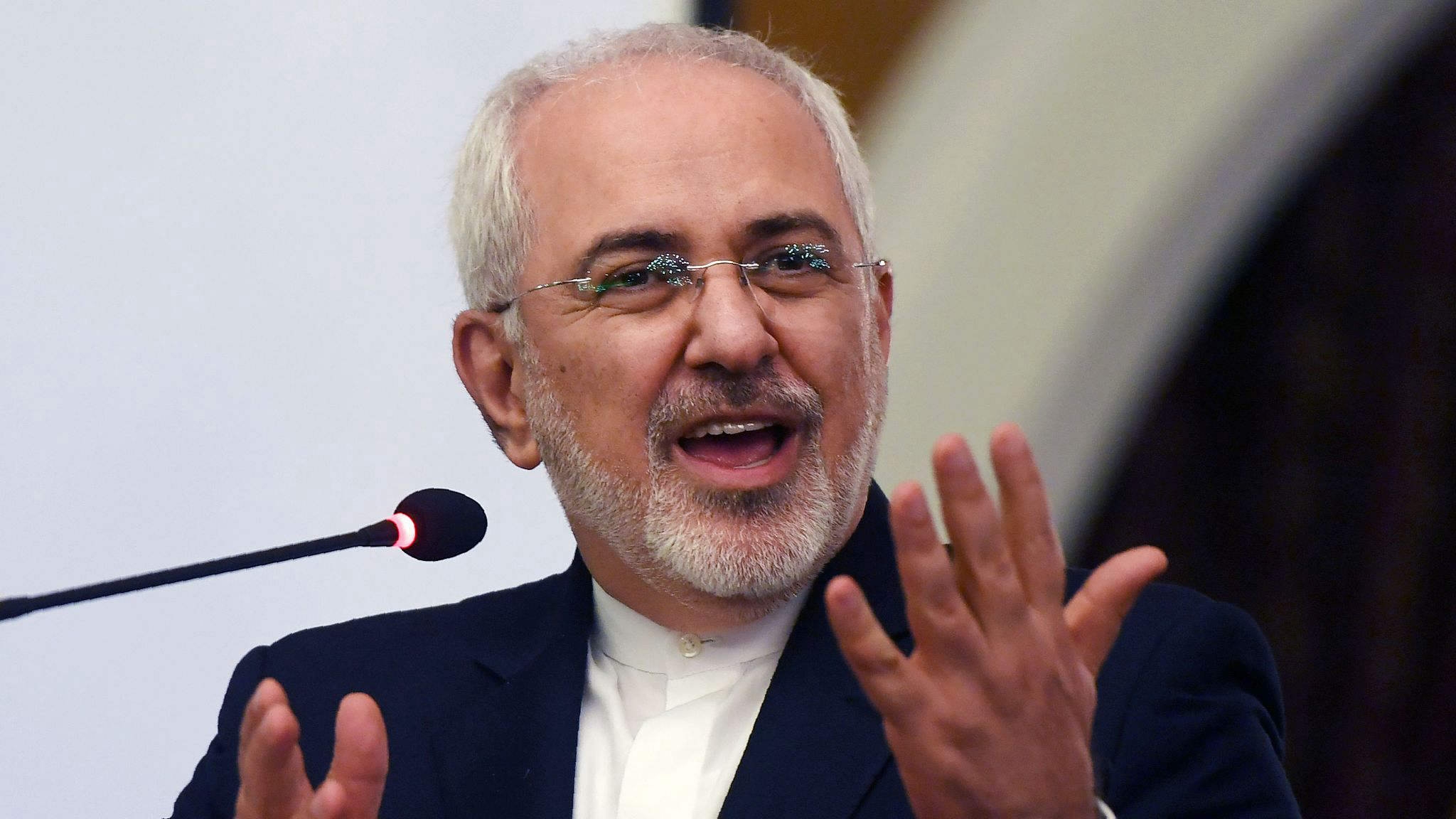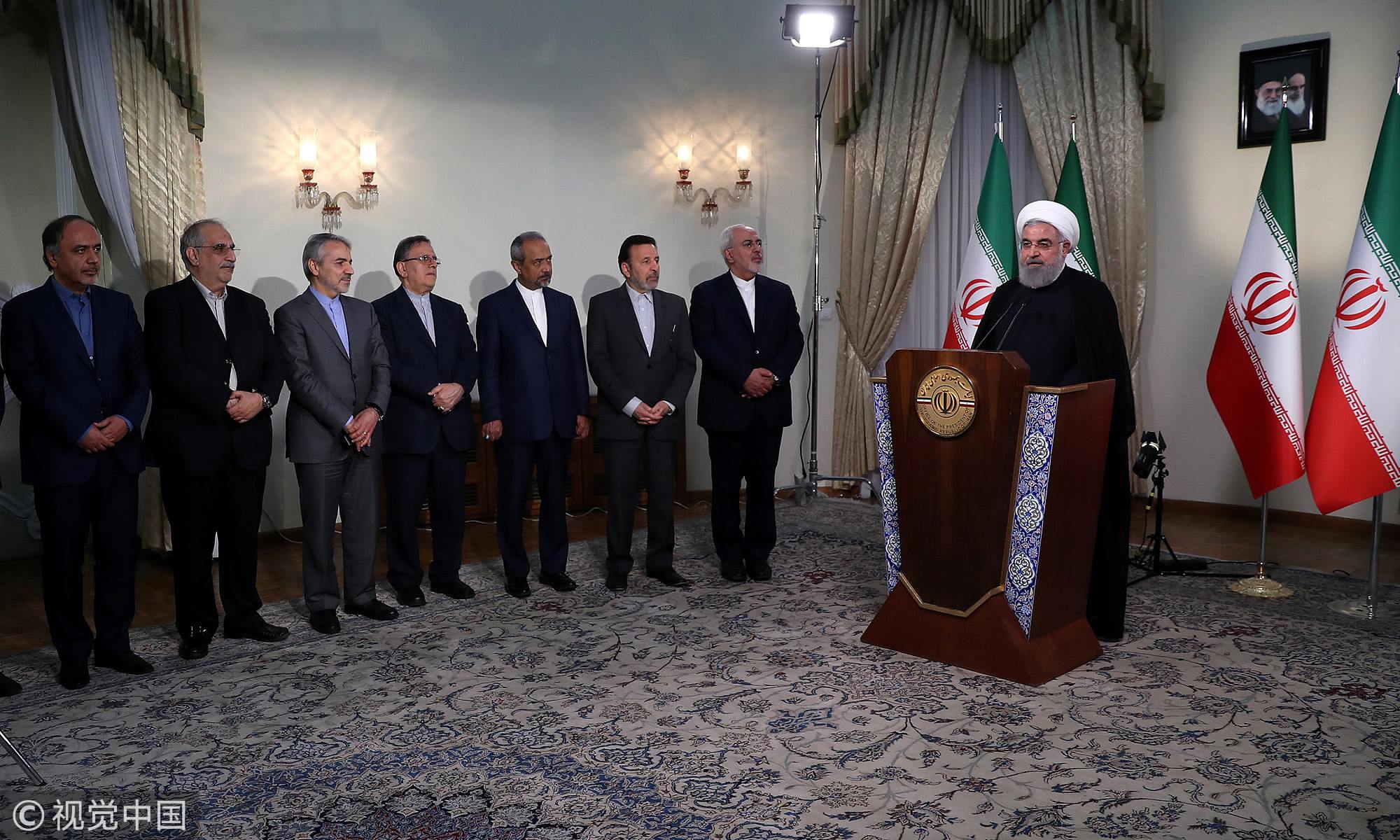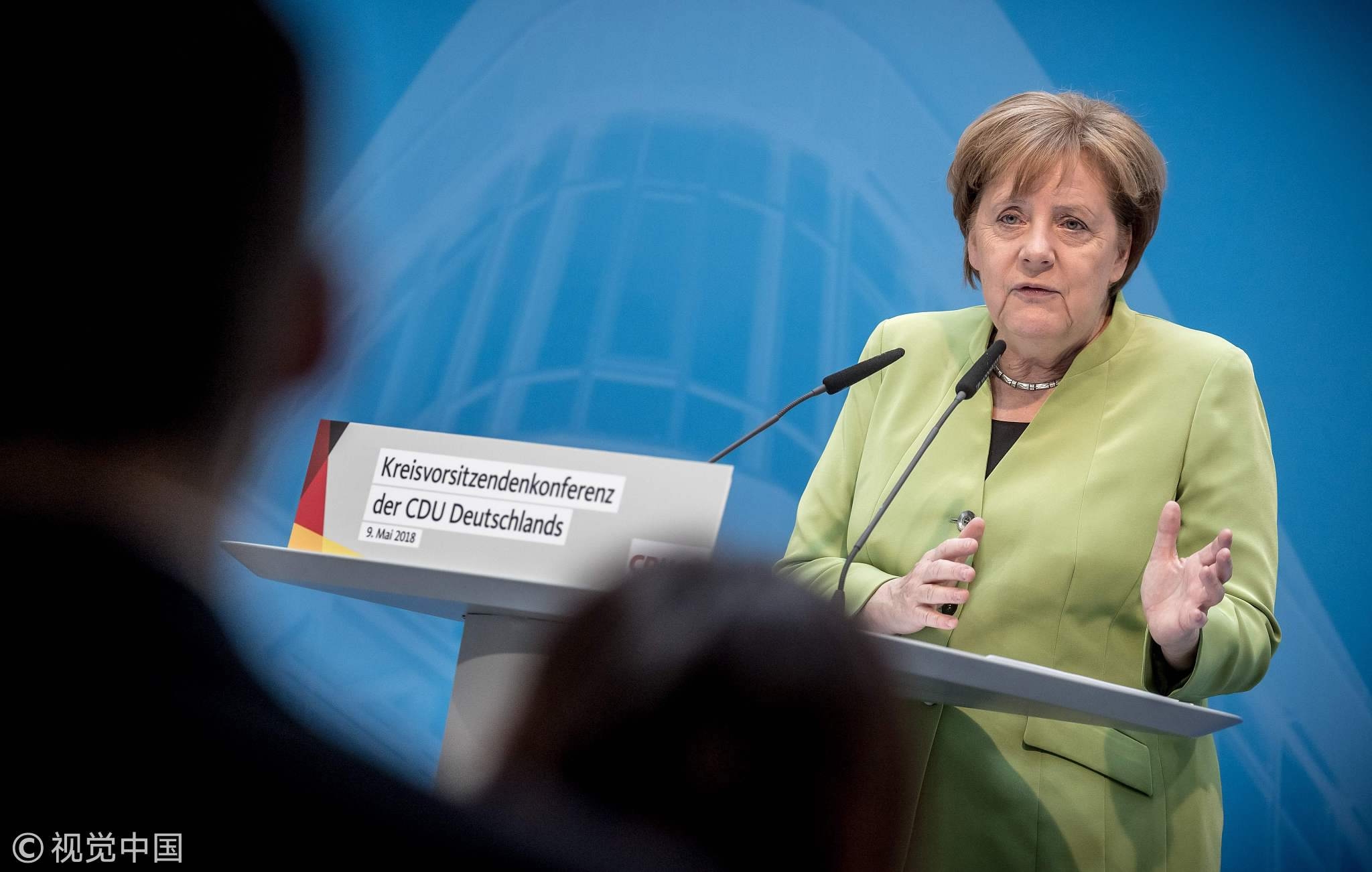
(Photo: CGTN)
Iran's Foreign Minister Mohammad Zarif is in Beijing on a diplomatic tour to meet with Chinese officials following US President Donald Trump’s decision to pull out of the landmark 2015 nuclear deal.
Zarif will also visit Moscow and Brussels to hold meetings during the current trip. China, Russia, France, Germany, Britain, and the United States signed the 2015 accord, which provided Tehran with relief from sanctions in return for curbs on its nuclear program.
"The European countries should give us guarantees that in spite of the US withdrawal from the JCPOA, the interests of the Iranian nation will still be protected," Zarif told reporters upon arrival in Beijing. He said Iran would only stay in the nuclear deal if its national interests are guaranteed through cooperation among the remaining parties.
“The goal of this visit is to discuss new ways for cooperation after the US exit from the JCPOA. Iran and China have deep-rooted ties. China helped Iran during difficult times. They also forged constructive dialogue with Tehran during the 2015 nuclear negotiations,” the Iranian foreign minister added.
Before leaving for China, Zarif had said that Iran was preparing to resume "industrial-scale" uranium enrichment "without any restrictions” unless Europe provided solid guarantees that it could maintain trade ties despite renewed US sanctions.

Iran President Hassan Rouhani standing near members of his government while giving a speech on Iranian TV in Tehran after the US announced withdrawal from the Iran nuclear deal, May 8, 2018. (Photo: VCG)
His trip to Beijing comes less than a week after President Donald Trump announced that the US was walking away from the Joint Comprehensive Plan of Action (JCPOA) which he described as “a horrible deal.” Despite strong protests and last-minute lobbying by his European partners, Trump also said he would reinstate US nuclear sanctions on Iran and impose "the highest level" of economic bans on the Islamic Republic.
Zarif began the tour on President Hassan Rouhani's order to sound out Europe and other parties to the JCPOA about the possibility of keeping the deal in place. Zarif says Iran wants the remaining parties to give it clear-cut guarantees about fulfilling their obligations if Tehran remains in the deal.
In Brussels, Zarif will attend a meeting with his French, German and British counterparts as well as EU foreign policy Chief Federica Mogherini.
All five have criticized Trump's move to walk out of the deal and re-impose sanctions, but European companies in particular will be highly vulnerable to economic pressure from Washington. France and its European allies plan to submit proposals to the European Commission that are designed to strengthen Europe's capacity to defend its economic interests.

"We will remain committed to this agreement and will do everything to ensure that Iran complies with the deal," German Chancellor Angela Merkel says during a meeting with regional leaders of her conservative Christian Democratic Union (CDU) party in Berlin on May 9, 2018. (Photo: VCG)
"There is a realization among all European states that we cannot keep going in the direction we are headed today whereby we submit to American decisions," French Finance Minister Bruno Le Maire told reporters when asked about Europe's response to US sanctions against Iran.
Meanwhile, the White House is demanding the existing inspection regime continue under the aegis of the International Atomic Energy Agency, the UN nuclear watchdog. The deal forces Iran to open any site to inspectors within 24 days at most and introduced 24-hour remote surveillance at some sites.


